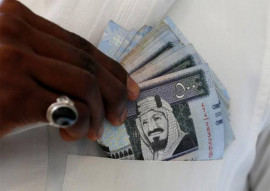
On top of that, intra-regional trade between Islamabad and New Delhi may bring prosperity for millions of people, as it will help create opportunities for jobs and enhance incomes which will surely reduce poverty, said the 13th flagship publication of the Mahbub-ul-Haq Human Development Centre titled “Trade and Human Development in South Asia”.
“As high as 55 per cent potential of intra-regional trade in South Asia has remained untapped and more than $1.8 billion worth of trade potential between the arch-rivals has remained unutilised, which is over 80 per cent of the existing bilateral trade,” said the report.
It further said the regional trade could directly affect South Asia’s human development through generating employment, enhancing income and contributing to poverty reduction.
“It is a timely report and the suggestion to focus on intra-regional trade will help the government formulate a policy to promote trade,” said Senate Chairman Farooq H Naek at the launch of the report.
“The report has tried to sell an idea, which is opposite to what is the policy of Islamabad towards New Delhi,” said former secretary foreign affairs Akram Zaki.
US Secretary of State Hillary Clinton has also advocated ‘trade first then peace’ between both the countries, he added.
The report suggested that the South Asian region lost trade opportunities because of India-Pakistan hostility, a similar export basket, presence of non-tariff trade barriers particularly from the Indian side and infrastructure bottlenecks.
Former finance minister Dr Hafeez Pasha said the negative trade list of regional countries was excluding 53 per cent of the total regional exports from trade between them.
“The government must seriously consider declaring India the most favoured nation for trade,” he argued.
The report said total intra-regional trade is just five per cent or $30 billion of the total regional trade. In comparison, the Association of South East Asian Nations’ (Asean) regional trade is 25 per cent of its total volume.
“Countries need to trade to upgrade worker knowledge, reduce poverty and improve well-being of people,” said Khadija Haq, the Chairperson of the Mahbub-ul-Haq Human Development Centre.
She said the gains from trade in services were very limited due to restrictions on cross-border movement.
The report said one-third of Pakistan’s population lives below the poverty line, which is only second to Bangladesh in the region. A large section of the population lives on $1.25 a day, the report concluded.
Published in the Express Tribune, June 16th, 2010.




1732883922-0/diddy-(48)1732883922-0-165x106.webp)

1732882586-0/Express-Tribune-(7)1732882586-0-270x192.webp)










COMMENTS (18)
Comments are moderated and generally will be posted if they are on-topic and not abusive.
For more information, please see our Comments FAQ